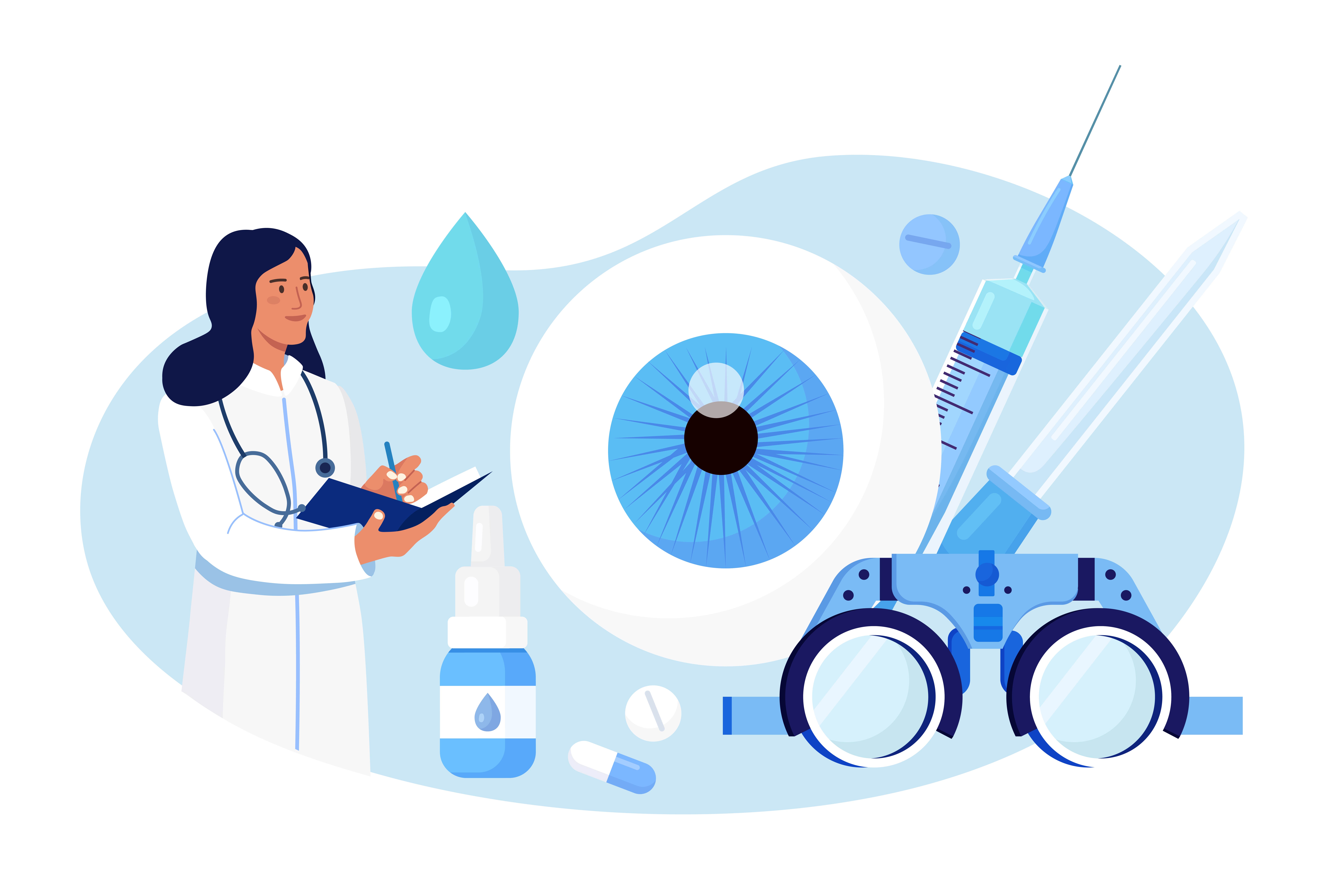Can Diabetes Cause Dry Eyes?
Introduction:
Diabetes is a complex condition that can have far-reaching effects on various parts of the body. While its impact on blood sugar levels and organ function is well-known, there are lesser-known effects that deserve attention. One such effect is its potential impact on eye health, specifically the development of dry eyes.
In this blog, we will delve into the connection between diabetes and dry eyes, exploring the reasons behind this phenomenon, its implications, and practical ways to manage and alleviate the discomfort of dry eyes for individuals living with diabetes.
The Diabetes-Dry Eyes Connection:
Diabetes is characterized by the body’s inability to properly regulate blood sugar levels, leading to a host of complications. Among these, eye-related complications are common and include diabetic retinopathy, cataracts, and glaucoma. However, dry eyes, while not as widely recognized, are a prevalent issue among people with diabetes. The connection lies in the intricate relationship between blood sugar levels, the nervous system, and the delicate balance of tear production.
Understanding Dry Eye Syndrome:
Dry eye syndrome, or dry eyes, occurs when there is an imbalance in the composition and production of tears, which are essential for maintaining the health and comfort of the eyes.
Tears consist of three layers: an oily layer to prevent evaporation, a watery layer for moisture, and a mucous layer to spread the tears evenly. In diabetes, high blood sugar levels can lead to damage in the blood vessels that supply the eyes, as well as nerves that control tear production. This can disrupt the tear film’s composition, resulting in dry, irritated, and uncomfortable eyes.
The Role of High Blood Sugar:
High blood sugar levels associated with diabetes can directly impact the health of blood vessels and nerves throughout the body, including those responsible for eye health. When blood vessels become damaged, it affects blood flow to various parts of the body, including the eyes. Similarly, nerve damage can disrupt the signals that stimulate tear production, leading to reduced tear quantity and quality. As a result, individuals with diabetes are more susceptible to experiencing dry eyes.
Preventive Measures and Management:
- Blood Sugar Control: Maintaining blood sugar levels within the target range is a cornerstone of diabetes management. By preventing prolonged periods of high blood sugar, you can reduce the risk of damage to blood vessels and nerves that contribute to dry eyes.
- Regular Eye Exams: Comprehensive eye exams are essential for detecting and monitoring eye-related complications. An eye specialist can identify the early signs of dry eyes and recommend appropriate interventions.
- Artificial Tears: Lubricating eye drops, known as artificial tears, can provide relief from dryness and discomfort. These over-the-counter drops can supplement the eye’s natural tear production and soothe irritation.
- Blinking Exercises: Regular blinking exercises can help stimulate tear production and prevent dryness. This is especially important for individuals who spend prolonged periods looking at screens, as reduced blinking can exacerbate dry eyes.
- Eyelid Hygiene: Proper hygiene of the eyelids helps prevent blockages in the tiny oil-producing glands that contribute to tear stability. Warm compresses and gentle cleaning can help maintain optimal tear quality.
- Nutrition: A balanced diet rich in omega-3 fatty acids, vitamin A, and antioxidants can support overall eye health. Foods like salmon, flaxseeds, carrots, and leafy greens contribute to better tear production and quality.
Consulting an Eye Specialist:
If dry eyes persist or worsen, seeking the expertise of an eye specialist is crucial. They can conduct a thorough evaluation to determine the severity of dry eyes and recommend appropriate treatment options. Depending on the individual’s condition, prescription eye drops, lifestyle modifications, and other interventions may be suggested to alleviate symptoms and prevent further discomfort.
The Importance of Hydration:
Proper hydration plays a significant role in maintaining tear production. Drinking an adequate amount of water supports overall bodily functions, including tear gland function, helping to alleviate dry eyes.
Conclusion:
While diabetes can contribute to dry eyes, proactive measures and diligent eye care can alleviate discomfort and reduce the risk of more severe eye issues. By prioritizing good blood sugar control, adopting a healthy lifestyle, and seeking guidance from eye care professionals, individuals with diabetes can enhance their overall eye health and quality of life. Regular eye exams are an integral part of diabetes management, enabling early detection and management of any eye-related complications.
Through a combination of self-care and expert advice, individuals can take control of their eye health and mitigate the challenges posed by diabetes.
Other Health Articles:
Understanding Diabetes: Causes, Types, and Risk Factors
The Role of Nutrition in Diabetes Management
Personalized Dietary Counseling for Diabetes
“Humalog vs Novolog”, for Effective Blood Sugar Control, A Comprehensive Comparison
Disclaimer:
Medical Advice: The information provided in this blog post is for educational purposes only and should not be considered as a substitute for professional medical advice, diagnosis, or treatment. Always consult with a qualified healthcare professional for personalized guidance regarding your specific medical condition.
Accuracy of Information: While we strive to provide accurate and up-to-date information, the field of medicine and viral fevers is constantly evolving. The content in this blog post may not reflect the most current research or medical guidelines. Therefore, it is advisable to cross-check any information provided with reliable sources or consult a healthcare professional.
Individual Variations: The symptoms, causes, treatment options, and preventive measures discussed in this blog post are general in nature and may not apply to everyone. It is important to remember that each individual’s situation is unique, and personalized medical advice should be sought when making healthcare decisions.
External Links: This blog post may contain links to external websites or resources for additional information. However, we do not endorse or have control over the content of these third-party websites. Accessing these links is done at your own risk, and we are not responsible for any consequences or damages that may arise from visiting these external sources.
Results May Vary: The effectiveness of treatment options or preventive measures mentioned in this blog post may vary from person to person. What works for one individual may not work the same way for another. It is essential to consult with a healthcare professional for personalized advice tailored to your specific needs.

Chief Consultant Diabetologist & Preventive Cardiologist, Consultant Functional and Lifestyle Medicine, Geriatrician & Family Medicine Specialist, Nutritionist, Life Counsellor and Wellness Coach, Motivational Speaker & Columnist, NLP Practitioner and Hypnotherapist, Bach flower Therapist


